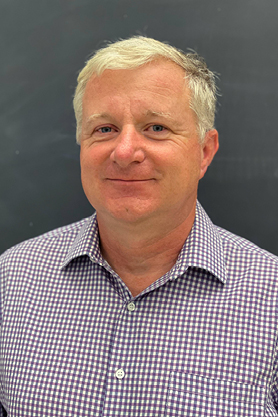Norbert Neumeister
NOTE: E-mail addresses end with @purdue.edu

Education
Ph.D., Physics, University of Technology Vienna, 1996M.S., Physics, University of Technology Vienna, 1992
Professional Experience
- Professor, Purdue University, 2014 - present
- Associate Professor, Purdue University, 2010 - 2014
- Assistant Professor, Purdue University, 2005 - 2010
- Scientific Associate, CERN, 2002 - 2004
- Scientific Staff, Institute for High Energy Physics, Vienna, Austria, 2002 - 2004
- Research Fellow, CERN, 1999 - 2001
- Postdoctoral Research Associate, Institute for High Energy Physics Vienna, Austria, 1996 - 1999
Research Interests
Prof. Neumeister's research focus is on experimental particle physics. His main areas of interest include the phenomenon of electro-weak symmetry breaking, the origin of the matter anti-matter asymmetry in the Universe, and the search for new physics beyond the established Standard Model of particle physics. In order to answer the main questions in these areas, high-energy particle accelerators, innovative detectors and powerful computers are required.
The Large Hadron Collider (LHC) at CERN provides a crucial new capability to study the elementary constituents of matter and the fundamental forces that control their behavior at the most basic level. It uniquely has sufficient energy and luminosity to probe in detail the TeV energy scale relevant to electroweak symmetry breaking.
Currently Prof. Neumeister is a member of the CMS (Compact Muon Solenoid) collaboration, where he is active in the fields of event selection and reconstruction, computing, software development and data analysis. He is operating the CMS Tier-2 analysis center at Purdue. The CMS experiment studies proton-proton collisions at a centre-of-mass energy of 13 TeV produced by the LHC. The experiment is expected to answer unresolved questions about the current standard theory of elementary particles and their interactions, and enable an even deeper level of knowledge about the fundamental building blocks of nature. The main goal of CMS is to understand the mechanism via which the symmetry between the electromagnetic and weak interaction is broken. In addition, most new theories of fundamental interactions (e.g. Supersymmetry) predict that the LHC will observe a host of new particles. The CMS experiment searches for new particles and phenomena, such as extra dimensions and the existence of massive gauge bosons, at the energy frontier.
Teaching
- PHYS 149: Mechanics, Heat and Wave Motion
- PHYS 220: General Physics
- PHYS 272: Electric and Magnetic Interactions
- PHYS 272H: Electric and Magnetic Interactions (Honors)
- PHYS 360: Quantum Mechanics
- PHYS 460: Quantum Mechanics I (Honors)
- PHYS 461: Quantum Mechanics II (Honors)
- PHYS 564: Introduction to Particle Physics I
- PHYS 565: Introduction to Particle Physics II
Awards and Honors
- Department of Energy (DoE) Outstanding Junior Investigator Award in High Energy Physics, 2006
- Ruth and Joel Spira Award for Excellence in Undergraduate Education, 2008
- Seed for Success Award, Purdue University 2006, 2007, 2009, 2010, 2011, 2012, 2013, 2019
- CERN research fellowship, 1999 - 2001
- Co-recipient of the Particle Physics Prize of the European Physical Society 2013 awarded to the CMS collaboration for the discovery of a Higgs boson)
- LHC Physics Center (LPC) Distinguished Researcher 2017, 2018
Professional Memberships
- Member of the American Physical Society
- Member of the European Physical Society
- Member of the Austrian Physical Society
Selected Publications